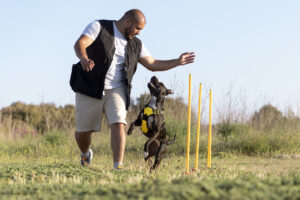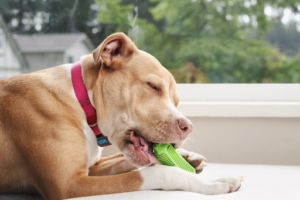Allergies in dogs can manifest in various ways, making it important for pet owners to understand the signs and symptoms. From skin irritations to respiratory issues, the symptoms of dog allergies can range from mild to severe, and prompt treatment is crucial for maintaining the health and well-being of your furry companion.
Itching and Scratching : One of the most common symptoms of dog allergies is itching and scratching. Dogs with allergies may lick and chew at their skin, leading to hair loss, redness, and even open sores. These symptoms are often caused by atopic dermatitis, an allergic skin condition that affects dogs.
Respiratory Distress : Another common symptom of dog allergies is respiratory distress, such as sneezing, coughing, and difficulty breathing. Environmental allergens like pollen or mould or food allergens can cause these symptoms.
Diarrhoea and Vomiting : Diarrhoea and vomiting are common symptoms of dog allergies, often caused by food allergies. In some cases, dogs may also experience swollen paws or ears due to their allergies.
If you suspect that your dog has allergies, it’s important to consult with your veterinarian. They will be able to perform a physical examination and conduct allergy testing to determine the cause of your dog’s symptoms.
Treatment Options for Dogs
Dog allergies include antihistamines, steroids, immunomodulators, natural remedies like omega-3 fatty acids, probiotics, and herbal supplements. Sometimes, a change in diet may also be necessary to manage food allergies.
It’s also important to note that some dogs may have multiple allergens, so it’s important to work closely with your veterinarian to develop a treatment plan that addresses your dog’s specific allergies.
In summary, recognizing the symptoms of dog allergies is crucial in order to provide prompt and effective treatment. If your dog is showing signs of itching, scratching, sneezing, coughing, difficulty breathing, diarrhoea, vomiting, swollen paws or ears, it is best to consult with your veterinarian for proper diagnosis and treatment.







